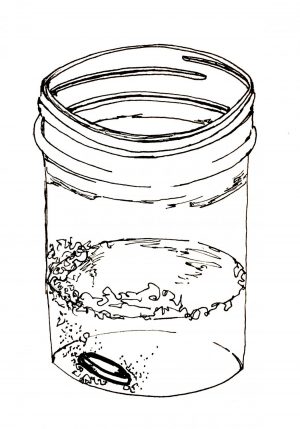The Hoax of Supplements
December 7, 2017
It’s that time of year again: cold and flu season. As soon as you get the sniffles or a sore throat your first reaction may be to reach for that Emergen-C or Airborne. Here’s the thing: those are only going to help if you’ve got severe nutritional deficiencies, or if you are a professional athlete. Otherwise, they become too much of a good thing.
For starters, nutritional supplements are unregulated in The United States. They are not tested for safety, they are not even tested as to whether or not they work. You can thank the Dietary Supplement Health and Education Act of 1994 for that one. It was by every measure a successful lobbying push by the pharmaceutical industry.
Soon enough both Airborne and Emergen-C lost class action lawsuits, collectively settling about $30,000,000. Why? The courts said they used false advertising, without scientific evidence to manipulate their health benefits.
However, the source of misinformation goes farther back. In 1968, chemist Linus Pauling stated that high doses of Vitamin C prevent colds. They even made him feel livelier and healthier. Yet he offered no credible explanation for his feelings. Still, his book was a bestseller and ingrained the assumption of Vitamin C with health in the public mind.
Remember, this is not to say vitamins and minerals are unhealthy. Far from it. They are essential to our everyday fitness. In fact, the only proven methods to prevent a cold or other sickness are to wash your hands regularly and eat healthy fruits and vegetables; foods that can supply you with all the vitamins and minerals you need. And if you want to shorten your sickness, rest and hydration are the best ways to do so.
Besides, the recommended doses set by Airborne and Emergen-C flirt with the levels considered dangerous by the National Institutes of Health and The Mayo Clinic. It’s hard to imagine any case where over 1,000 percent of anything food-related is good.

In general, meta analyses on nutritional supplements show that they do nothing unless you have scurvy or are training for the Olympics. The reason being that supplements lack the absorption ability of foods like fruits and vegetables. They seem to require natural fiber, protein and phytochemicals, among other things that pills and powders lack.
It is important to note that even this piece is not conclusive. Just to get the basic facts required a lot of sifting through articles that condemned supplements as the devil or praised those little packets as divine miracles. Thus, you will be confronted on this issue again with people passionate to either end. Sources with strict editorial integrity and research organizations untainted with biased funding will help you be informed; the trick is to not fall for blogs and social media posts based on feelings, observations or small obscure studies.
The reason to avoid these products is because we simply do not know their long-term effects. All we seem to know is that they do not work as advertised. That should be enough to avoid them, and anything else that promises the stars with no scientific grounding.
In the end, the truth remains. Emergen-C, Airborne and other supplements have their benefits. They just apply to a small group of athletes and malnourished people. As for the rest of us, here is our prescription: eat healthy, sleep well, wash your hands and get hydrated. It’s that simple.







Denise Cordes Rappucci • Jan 3, 2018 at 7:48 am
sad….the reason Airborne and Emergen-C don’t work is the dose is too low. you do a terrible service.
A study by the British medical journal Lancet Oncology found that Functional Medicine was able to stop and reverse hypertension, obesity, heart disease, and prostate cancer. 6
A study by the Institute of Medicine found that scientifically proven conventional treatments, combined with meditation, yoga, acupuncture, and herbal medicine, proved to be both medically and cost-effective. 7
The National Institutes of Health conducted a meta-analysis entitled “Health Cost Effectiveness of Natural Health Products: A Systematic Review of Randomized Clinic Trials” and found positive health outcomes with cost savings up to 73 percent for natural products, compared to conventional treatments.